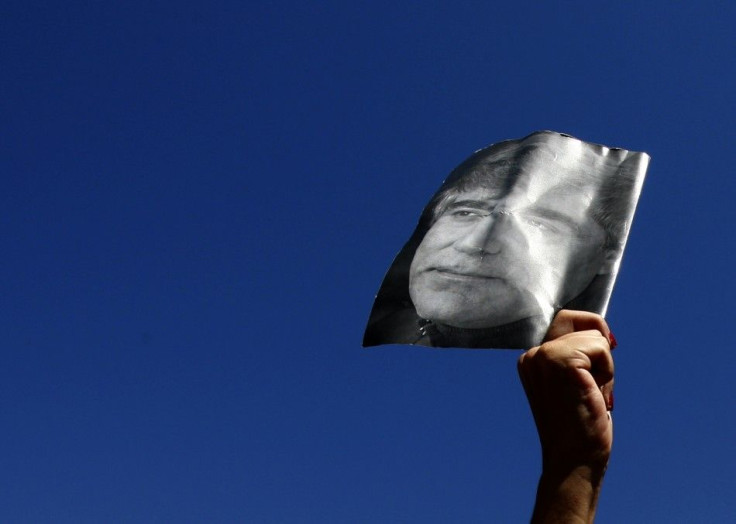Erhan Tuncel Acquitted of Murdering Hrant Dink, Armenian Journalist in Turkey

A court in Turkey has sentenced a man named Yasin Hayal to life in prison in connection with the murder of prominent Armenian journalist Hrant Dink. However, another suspect, Erhan Tuncel, was acquitted of murder charges.
Moreover, the two aforementioned defendants, along with all 19 suspects, were cleared of charges that they belonged to a secret terrorist organization.
Tuncel did receive 10 years in prison for an unrelated charge of bombing a McDonald’s restaurant in 2004.
The murder trial brings to an end a five-year odyssey that brought back terrible memories of Turkey’s troubled relations with its minorities, particularly Armenians.
Dink, who was the editor of a weekly publication called Agos, was shot dead in January 2007 in Istanbul by an ultra-right wing nationalist in broad daylight outside his office. For years prior to his death, he had been threatened by nationalists for “insulting Turkishness” for writing articles critical of the country.
The actual hitman, Ogün Samast, was sentenced to nearly 23 years last summer. But many more people are believed to be behind the conspiracy to murder Dink.
Indeed, the murdered man’s supporters and others believed the killing was a conspiracy by an underground nationalist right-wing group called Ergenekon that seeks ultimately to topple the elected civilian government of Turkey.
Tuncel reportedly confessed in the trial that Dink’s murder was the work of Ergenekon.
Former top military officials accused of links to Ergenekon are currently facing trial in an alleged plot to overthrow the government of Prime Minister Recep Tayyip Erdogan.
Meanwhile, Dink’s supporters are outraged by the acquittals and by the court’s determination that the defendants did not belong to any terrorist group.
The Dink family's lawyer, Fethiye Çetin, told reporters that the state itself was directly responsible for his killing because they did not adequately protect Dink from those who threatened to kill him.
“They made fun of us throughout the five-year trial process. We did not know they saved the biggest joke to the very end,” she said.
“This ruling means a tradition was left untouched. The state tradition of political murders. The tradition of state discriminating against some of its citizens and turning them into enemies.”
A supporter of Dink, Garo Paylan, said in a statement: “The ruling is the state’s decision. The ones who decided to take Hrant from us five years ago -- the security forces, gendarmerie, intelligence, judiciary, media, government, opposition -- will once again make a decision in the courthouse. They will say that the murder is the job of two or three hitmen. They will try to hide in their dark world. But we know them. They don’t know a thing: This case will not end before we say that it did.”
In addition, according to Turkish media, the trial has unearthed secret links between the defendants and Turkish police officials. Tuncel himself was unmasked as a police informant.
Amnesty International's Turkey researcher, Andrew Gardner, told the Guardian newspaper of Britain: There has been evidence since the time of the murder five years ago indicating that those on trial were working as part of a network, that state officials were complicit in the murder. This has been acknowledged by the Dink family lawyers, defendants in the case, the prosecutor and a state administrative investigation. Yet those individuals were not investigated effectively, they were not prosecuted. The court concluded that there was no organization behind the murder, moving still further from the weight of evidence.
Gardner added: It is a damning indictment of justice in Turkey, sending the message that those in positions of power will be protected and human rights violations by state officials will go unpunished. The investigation, the prosecution and the verdict were largely irrelevant to achieving justice for Hrant Dink.
© Copyright IBTimes 2024. All rights reserved.











